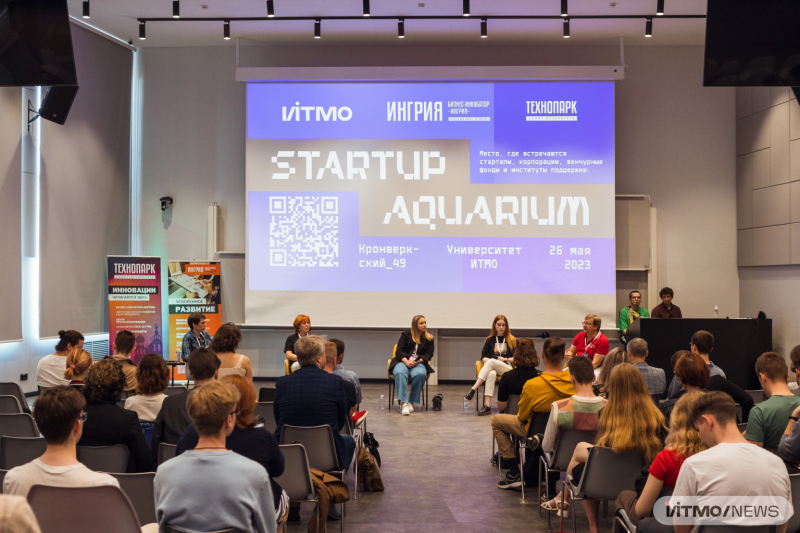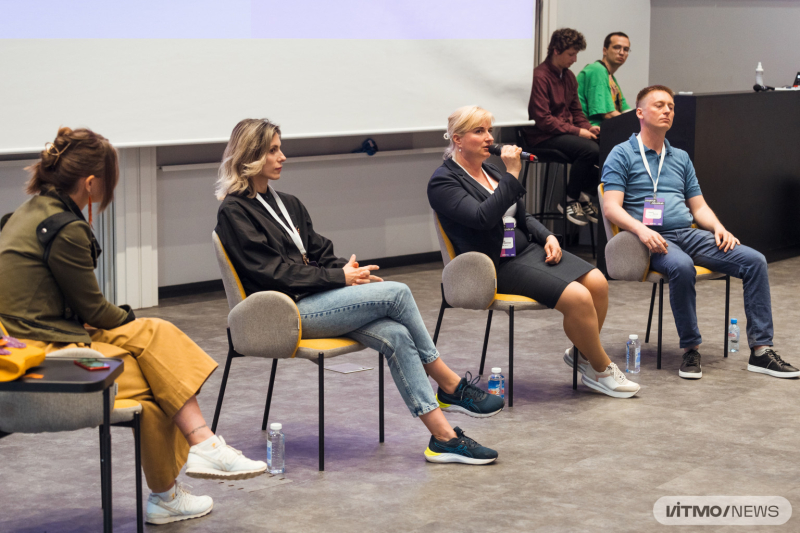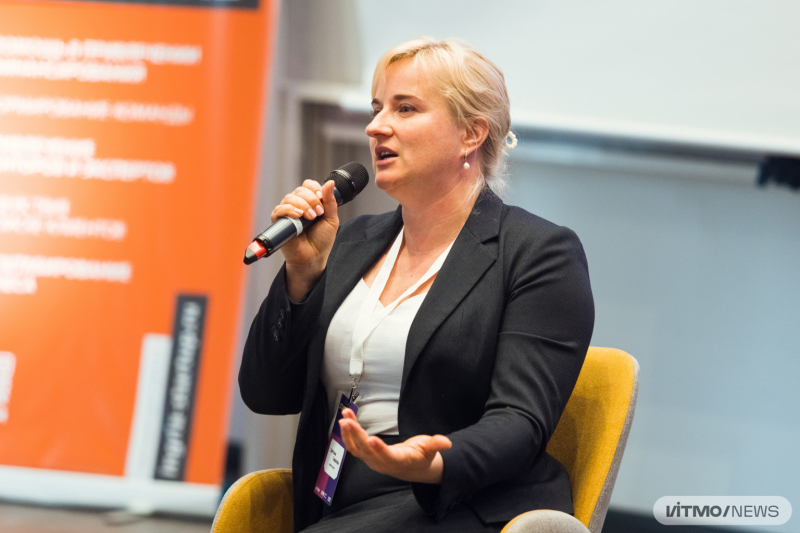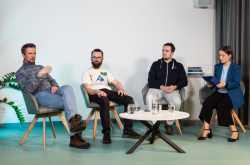Contents:
- I want to launch a startup. Where do I start?
- I have a team and an idea. What next?
- Where do I look for funding?
- Each organization has their own requirements for startups. How do I choose the right one?
- How to deal with rejection
I want to launch a startup. Where do I start?
First, you need to find a team and polish your idea. There are a few paths you can take here:
Hone your business skills. If you don’t have any prior experience in product development, it’s best to start with an online course at ITMO’s Preaccelerator, where you’ll learn the basics, such as packaging your product and finding your market and target audience.
The next step is ITMO’s Accelerator, a practical course for those who already have a product they want to develop. Here, the focus is placed on sales and marketing, as well as finding investors and patenting products.
Develop your project at a university’s startup studio. At ITMO, there are two: startup studio and SCAMT Startup Factory. At both, you can join an existing team or present your project and try to get funding.
Turn to the St. Petersburg Technopark. There, you can consult experts to test your business hypotheses, as well as attend topical events for startupers, where you’ll get feedback from mentors and boost your presentation skills.
Find your team at a hackathon. Olga Orlova, an associate professor at ITMO’s Faculty of Technological Management and Innovations, says that such events allowed her to assemble a team and launch her business.
Olga Orlova. Photo by Dmitry Grigoryev / ITMO.NEWS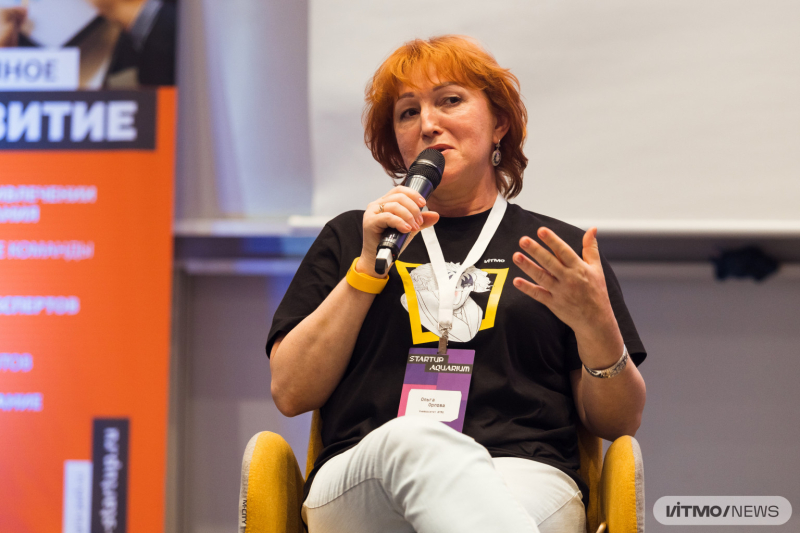
Read also:
I have a team and an idea. What next?
Now you can look for support by turning to business angels, technoparks, venture funds, or corporations. At this step, you will have to pass a selection and prove that your idea deserves attention.
Experts at Startup Aquarium pinpointed the key determinants of your success at this step:
The startuper’s motivation. According to Andrey Zverev, the head of investments in university startups at Skolkovo, when investors are learning about a startup, they are looking to evaluate how much its leader is ready to sacrifice for their idea. For instance, whether you would be able to combine your studies with working on the startup – or, in another example, if you’d put business matters over personal ones.
The idea’s ripeness. You have to have a concise description of your idea and be able to explain it in simple terms, adds Andrey Zverev. This will save you time and ensure success when applying for grants.
The team’s mindset. Maria Kalinina, who consults partner-university interaction projects at St. Petersburg Technopark, says that investors need to see that the startup’s team responds well to feedback and criticism. You have to be aware of the steps lying ahead of you and their results. Moreover, you need to constantly motivate your team to keep developing your product.
The product’s potential clients. Investors need to know what problem your product addresses and who is ready to buy it, adds Olga Orlova. Then, investors might help you find a team even if you don’t have one.
The team’s competencies. Finally, if the team is assembled, investors need to make sure the skills of its members are enough to create a product and sell it.
Startup Aquarium meetup. Photo by Dmitry Grigoryev / ITMO.NEWS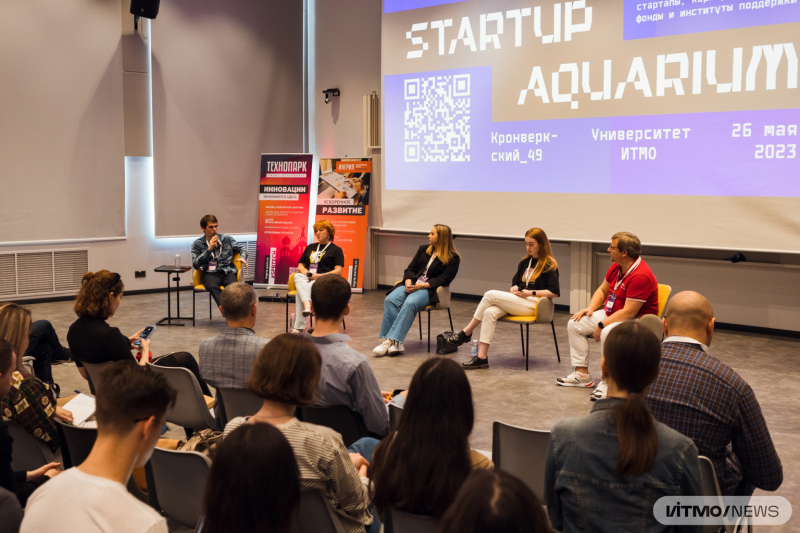
Read also:
How To Determine Your Startup’s Target Audience and Value Proposition
How To Efficiently Pitch a Business Idea
Where do I look for funding?
For starters, you need to identify the step your startup is at. This will determine where you are likely to find help.
“If you are a fledgling entrepreneur, you should turn to business incubators or accelerators; these are often found at universities. If you have some business skills, you’ve done a custdev study, and created an MVP, you should apply for a grant from the Foundation for Assistance to Small Innovative Enterprises (FASIE),” says Maria Kalinina.
Maria Kalinina. Photo by Dmitry Grigoryev / ITMO.NEWS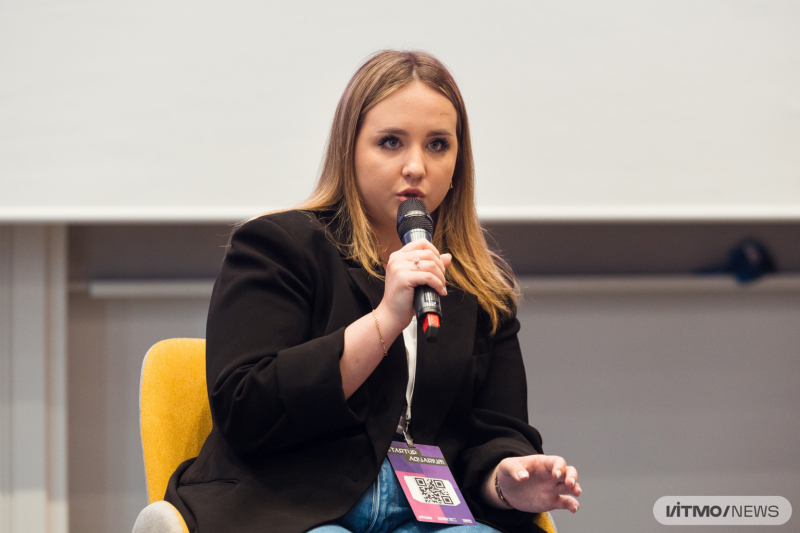
Budding startups. Such teams can benefit from FASIE’s programs Umnik (up to 50,000 rubles for commercial R&D projects) and Student Startup (up to 1 million rubles for developing products with the results of your own research).
Svetlana Gavrilova, a partner at the Genome Capital venture fund, adds another option for early-stage investments: reaching out to business angels or private investors.
Read also:
Startups by ITMO Students Win 1 Million Rubles in Funding
Experienced startups. If your team has a prototype, you’ve made your first sales, and now you are planning to scale up, you should look for support from venture funds.
“If you want to get funding at Skolkovo, you should be just a few steps away from making your first profit. Before that, you need to work on your skills, gain some experience of presenting your products to others, and keep looking for partners and sharing your experience. You can also come to Skolkovo at an earlier stage, when you’ve just put together a team, but in this case you need to already have a source of funding,” explains Andrey Zverev.
Andrey Zverev. Photo by Dmitry Grigoryev / ITMO.NEWS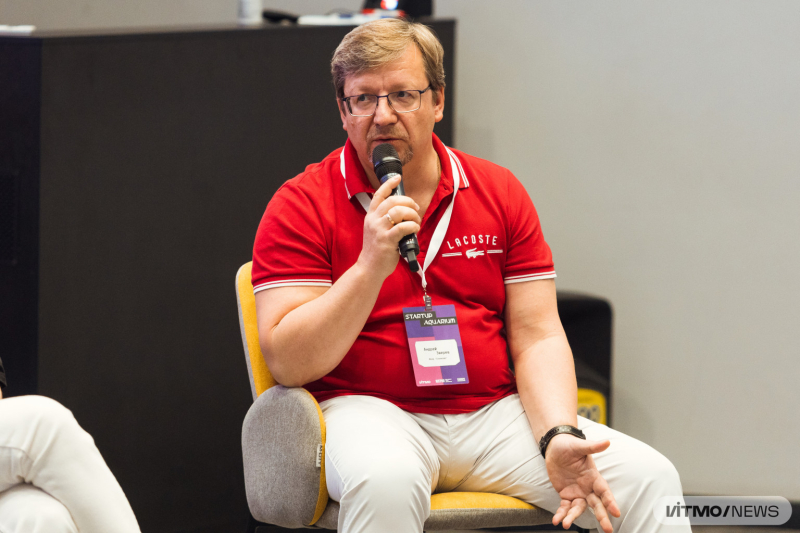
Each organization has their own requirements for startups. How do I choose the right one?
Among the institutions and programs you can benefit from in Russia are:
- Foundation for Assistance to Small Innovative Enterprises
- Platform of University Technology Entrepreneurship
- Federal Agency for Youth Affairs
- Platforms for startup-investor interaction, such as SberUnity or Startech.Base
Below, you will find more information about the options available at different startup organizations, venture funds, and corporations.
Startup Aquarium meetup. Photo by Dmitry Grigoryev / ITMO.NEWS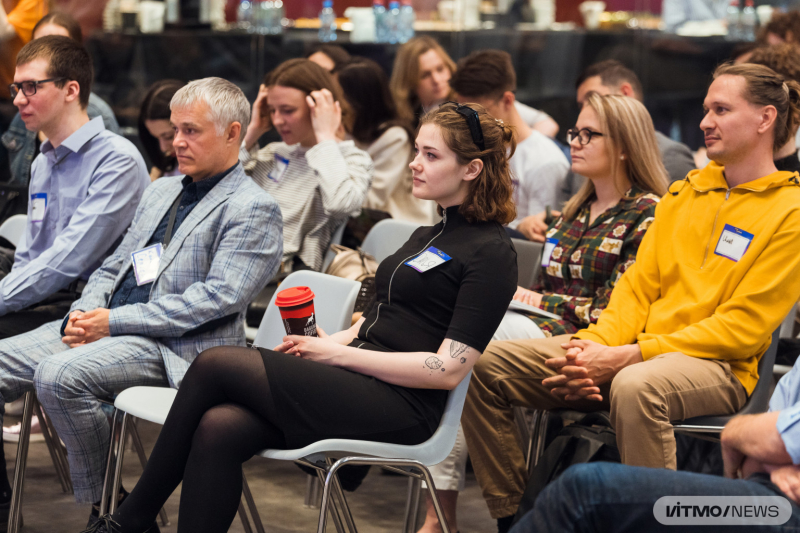
Startup support organizations
At Ingria, the business incubator of St. Petersburg Technopark, you can expect to find various forms of assistance, from offices and coworking spaces to consultations by experts from the incubator’s extended network. Moreover, tech-oriented startups can receive support from specialized centers for micro-reactor synthesis of active pharmacological substances and cyberphysical systems’ security, as well as other assistance with technological development.
According to Oleg Yakimov, the CEO of St. Petersburg Technopark, the incubator supports individual entrepreneurs and legal entities registered in the city. Applications are considered from tech-focused startups (in IT, biotech, industrial software engineering, radio electronics, etc.) with a prototype or an MVP that demonstrate advantages over existing technologies. You can apply here (in Russian).
Oleg Yakimov. Photo by Dmitry Grigoryev / ITMO.NEWS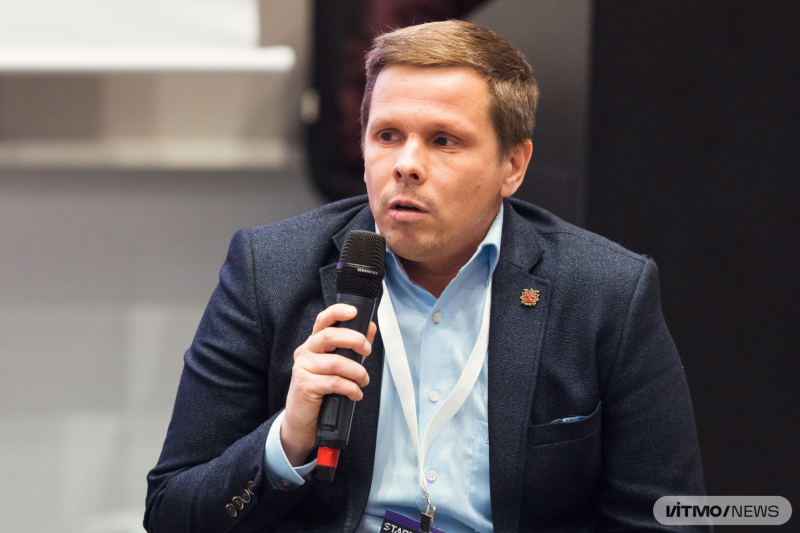
Russian Venture Company (RVC) runs GenerationS, a platform that aggregates corporate accelerators of various companies. You can choose a program you like, send your application, and help a company find a solution for their specific case in edtech, transportation, banking, and other fields. Elizaveta Morozova, a manager of corporate innovations at RVC, says that for startups GenerationS presents an opportunity to get the feel of the market, while for corporations – the chance to solve their problem. That’s why the platform focuses on startups with MVPs to assist them with testing, piloting, and scaling their technologies. You can explore the platform here.
Elizaveta Morozova. Photo by Dmitry Grigoryev / ITMO.NEWS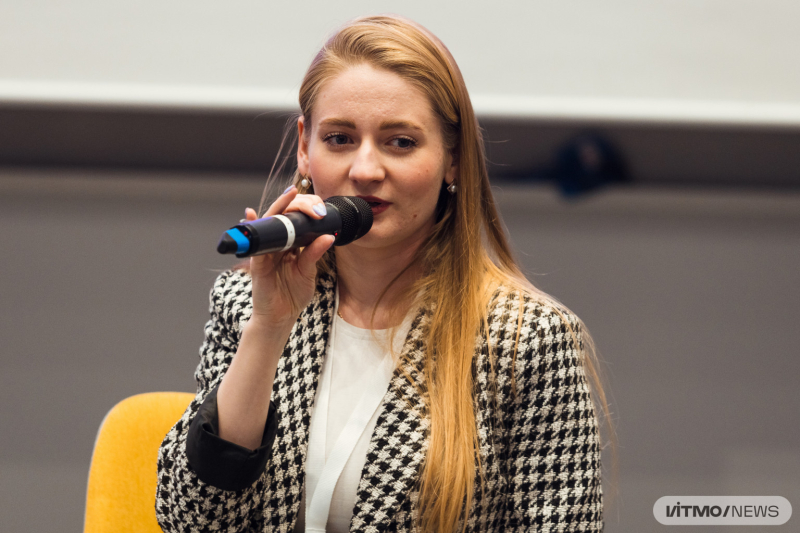
Internet Initiatives Development Fund (IIDF) connects corporations and startups in a similar way with a series of corporate accelerators that focus on banking, telecom, retail, etc. With support from the Ministry of Digital Development, Communications and Mass Media, IIDF also runs a special accelerator for IT startups called Sprint. This initiative helps teams increase their sales with several training modules and meetings with mentors.
Both opportunities are open to IT startups registered in Russia. According to Alena Samoletova, the head of IIDF’s corporate programs, it’s important to explore the field of a particular corporation before applying for their accelerator. Often, companies don’t have a specific description of the product they need, so you should be ready to come up with your own ideas.
Alena Samoletova. Photo by Dmitry Grigoryev / ITMO.NEWS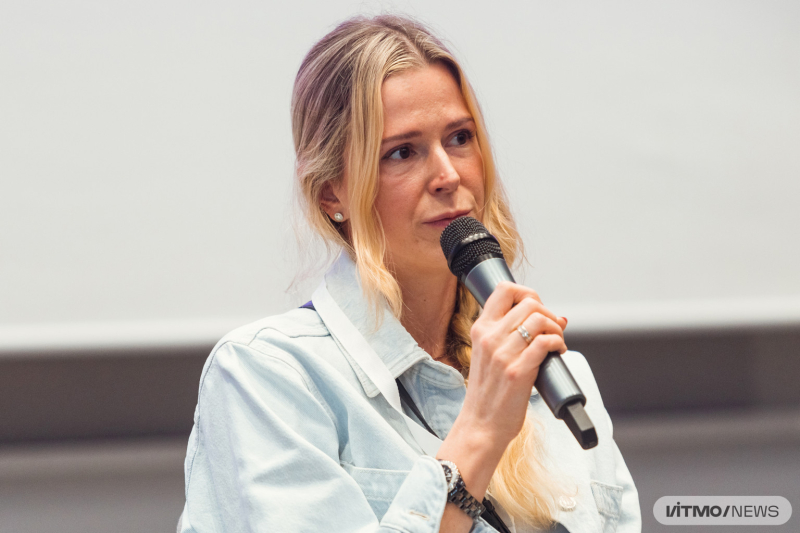
Skolkovo Foundation offers various perks for its participants, including tax benefits, different kinds of investments, as well as relevant services and acceleration programs. To be eligible for support, startups have to be registered in Russia and fall within one of Skolkovo’s clusters: IT, BioTech, EnergyTech, or PromTech. You can learn more and apply here (in Russian).
Startup Aquarium meetup. Photo by Dmitry Grigoryev / ITMO.NEWS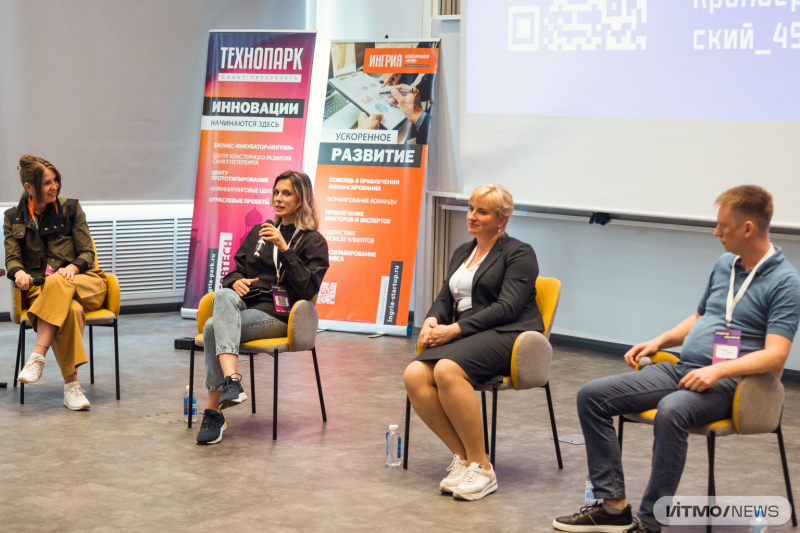
Venture Funds
Kirov Group Ventures invests in startups that are at their seed stage. The startup in question must have a Russian-speaking team that aims to enter the international market, explains Elena Morozova, the company’s head of development. The foundation is first and foremost interested in companies that develop B2B products in HR, FinTech, and digitization – such as digital twins or apps that facilitate team-based project work. To secure the backing of Kirov Group Ventures, a startup must have a functional product that presents advantages over its counterparts and can be scaled up for the international market.
Elena Morozova. Photo by Dmitry Grigoryev / ITMO.NEWS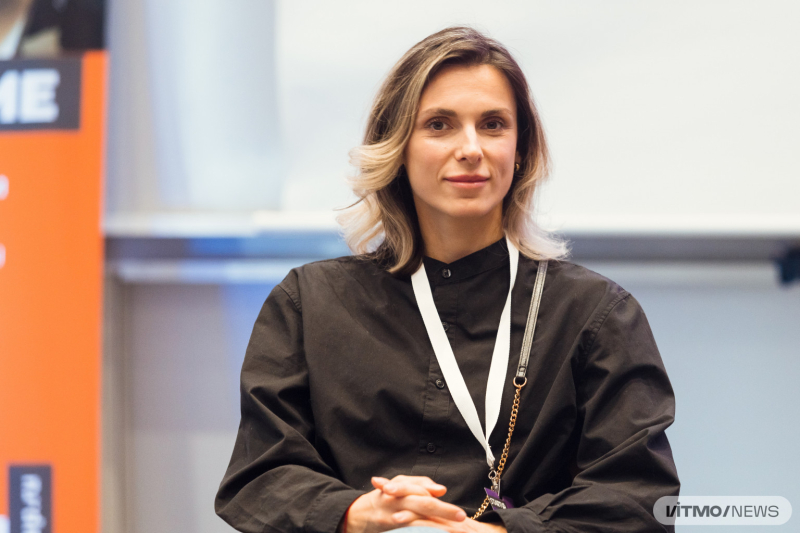
Genome Capital focuses on medtech startups involved in telemedicine, 3D printing, accessible diagnostics (e.g. at-home express tests), and medical robotics, explains Svetlana Gavrilova, a partner at the venture fund. As a rule, medtech and biotech startups must pass clinical trials and receive certification before launching an MVP – so it’s better to apply for the fund once you’ve completed that stage.
MTS Venture Fund works with startups in the fields of fintech, edtech, adtech, and martech, as well as joint consumption economy, the internet of things, and cloud storage. According to Andrey Ivanov, the head of an MTS StartUpHub regional branch, it’s important for startups to meet three criteria: they must pose strategic value for the MTS ecosystem, have anywhere from $0.5 million to $5 million in investments, and be at the seed, A, or A+ stage.
You can apply for investments from the MTS Venture Fund by filling out an application on the company’s website.
Andrey Ivanov. Photo by Dmitry Grigoryev / ITMO.NEWS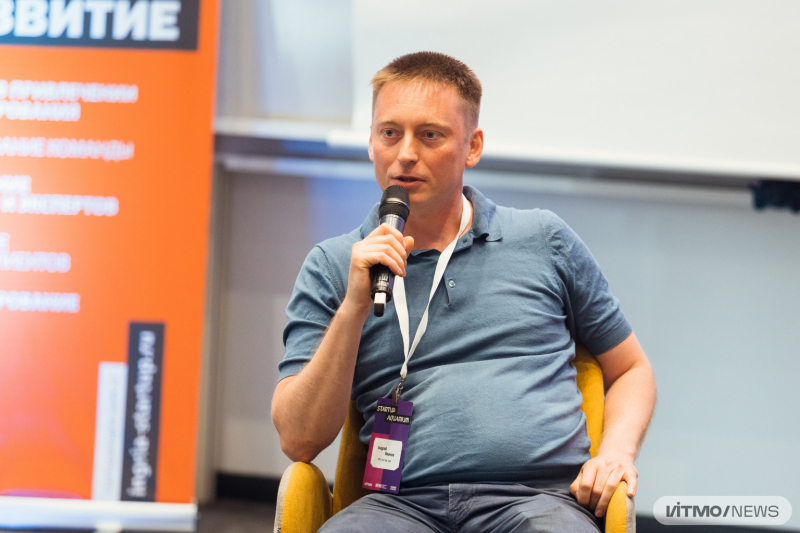
Read also:
Corporations
MTS StartUpHub is one of the subdivisions of the telecom giant’s Open Innovations and Investments Department. Its aim is to help startups become a part of the corporate ecosystem and raise funds from the associated venture fund. In addition, startups can rely on grant programs, pilot funding, access to sales channels, and development tools. The requirements for MTS StartUpHub residents are the same as the venture fund’s – applicants must have a product that aligns with the company’s interests.
Apply via the website.
Kaspersky Product Studio works with companies that already have a complete product. According to Nikolay Maydanchik, the head of the studio, the company is interested in startups focused on cybersecurity and software development for gaming and crypto investing.
Nikolay Maydanchik. Photo by Dmitry Grigoryev / ITMO.NEWS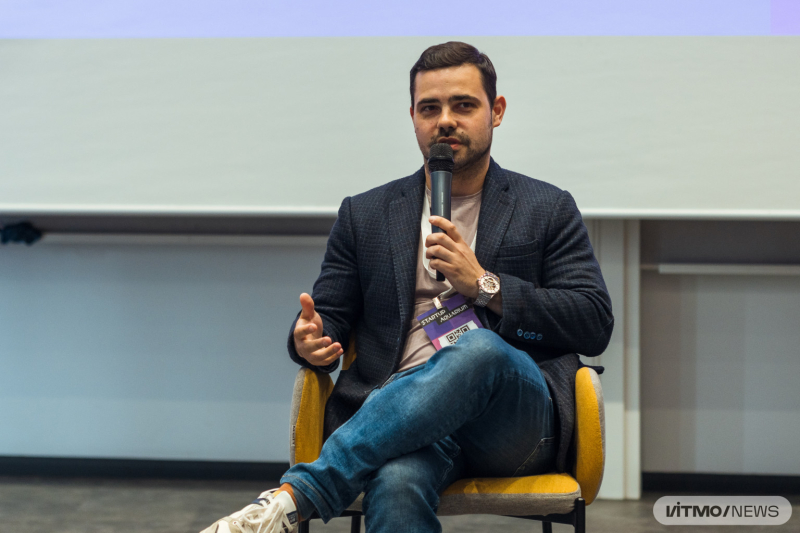
Yandex Cloud provides grants to startups that create IT infrastructure products such as servers, database management tools, machine learning software, and so on. Nikita Razhev, the startup program lead at the service, offers advice to potential applicants: before starting your partnership with Yandex Cloud, gain the support of its partners. That list includes, among others, the ITMO Technopark and the business incubator Ingria. Positive feedback from Yandex Cloud partners is a mark of quality that proves your startup will grow and its founders won’t make foolish errors.
Nikita Razhev. Photo by Dmitry Grigoryev / ITMO.NEWS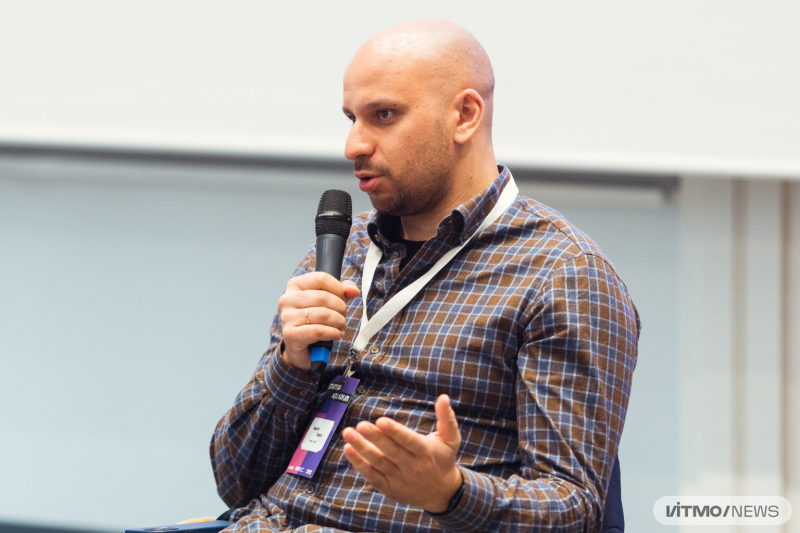
The pharmaceutical holding BSS also works through its partners, including the St. Petersburg Technopark, and conducts crash tests for medtech and healthtech startups. According to Yulia Gukkina, the company’s medical operations director, crash tests allow startups to gather feedback from pharmaceutical experts and provide a chance to launch their product with the company.
Yulia Gukkina. Photo by Dmitry Grigoryev / ITMO.NEWS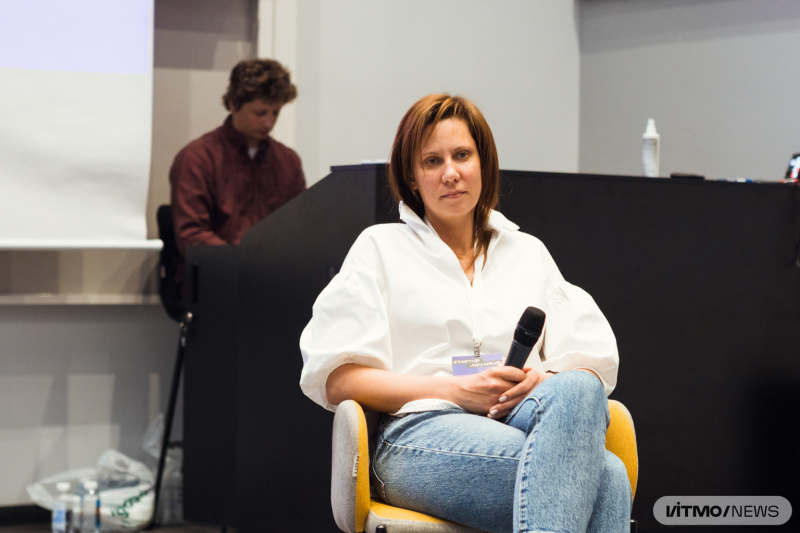
How to deal with rejection
Svetlana Gavrilova, a partner at Genome Capital, stresses the importance of not giving up. If you can’t gain an investment on the first attempt, you can apply again. It’s also a good idea to include the number of new clients or sales in your monthly or quarterly reports and send them to investors. This information may be helpful in gaining their interest and raising funds.
The offline meetup Startup Aquarium took place at ITMO University on May 26 with the support of the ITMO Technopark, the St. Petersburg Technopark, the ITMO Alumni association, and Ingria business incubator’s project consultant Tatiana Antipova. At a venue provided by ITMO, entrepreneurs and mentors conducted a series of discussions on ways to collaborate with state and private companies, while students received expert advice on growing their business.
